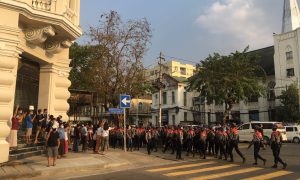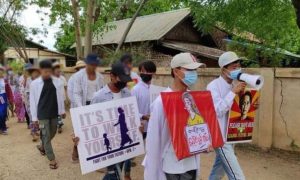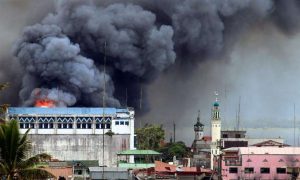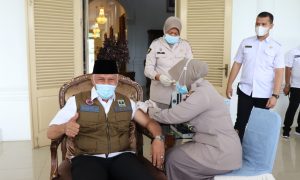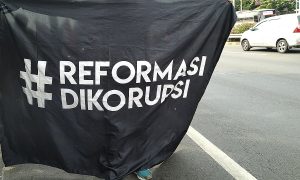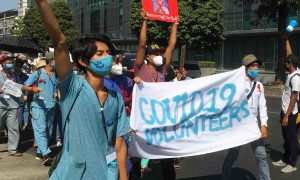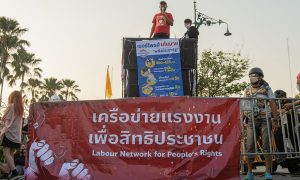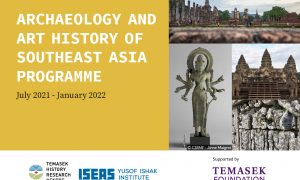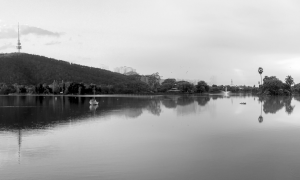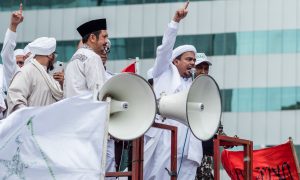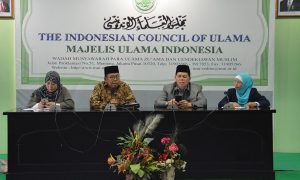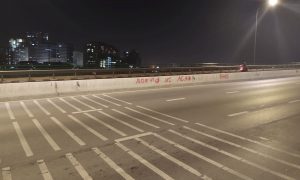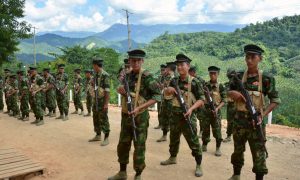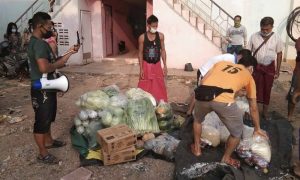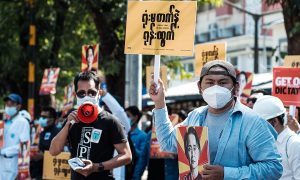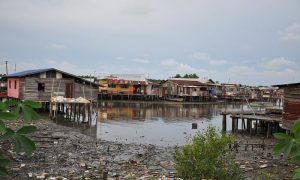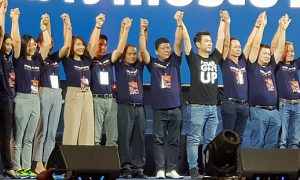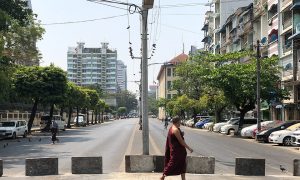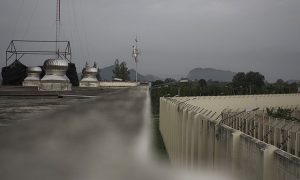On the current political landscape in Myanmar.
Protest Art – AnuPyinNyar
Since the start of the coup, Ku Kue's art has featured front and centre in many protests around the country.
Storytelling, subversion and satire in Tita Salina’s 1001st Island
A utopian vision with glimpses of a dystopian future.
Down, but not out: political violence in the Southern Philippines from 2016-2020
Fluctuations in incident and casualty data belie claims the end of Philippines’ insurgencies is near.
Frontline women: unrecognised leadership in Indonesia’s COVID-19 response
Incorporating women's experiences and skills would improve pandemic responses.
Uneven accountability reform: insights from parliament and bureaucracy in Indonesia
A dysfunctional accountability mechanism inhibits progress.
Myanmar Update 2021: Twin crises – COVID-19 and the coup
While it appears that the military has not changed much over the last decade, the country and its people certainly have.
Thai Workers against Dictatorship?
If the goal is to begin anew the unfinished political project of an equal society, it is thus crucial for democracy activists to secure broader support for the movement.
Temasek History Research Centre: Archaeology and Art History of Southeast Asia Programme webinar series
Comprehensive introductory lectures in Archaeology and Art History of Southeast Asia with a focus on the pre-Modern to the Modern periods.
The price for neutrality is reform and preparedness
The current version of ASEAN is inadequate to implement a robust neutrality enforcement policy that follows a “strong neutrality” and “cohesive neutrality” principle.
New Mandala’s 15th anniversary event
Join a live-streamed seminar on the state of play for independent and scholarly media on Southeast Asian studies, to mark the occasion.
The politics of banning FPI
Survey data points to a certain fragility in FPI’s support, but the longer-term consequences of banning of FPI may be a greater cause for concern.
Politics of Halal certification: the collapse of the MUI’s long-held monopoly
In the wake of increased government oversight, questions nonetheless remain over the MUI’s accountability.
From disinformation to democratic innovations: amplifying ordinary citizens’ voices
How do ordinary Filipinos make sense of their experiences of disinformation during elections?
Heaven Doesn’t Divide—Why This Gulf?
Morlam song practices still resound, even if criminalised, depoliticised and silenced.
New friends, old enemies: Politics of Ethnic Armed Organisations after the Myanmar Coup
Has the coup has brought these groups closer together or deepened disunity, and reduced the likelihood of the formation of the federal army?
In limbo: Migrant workers struggle with the Myanmar coup and COVID-19
As their travel documents expire Myanmar migrants risk becoming undocumented and excluded from legal protections by shortcomings in both Myanmar and Thai migration policies.
Gameplay for good: gamified crowdsourcing for better public policy in Southeast Asia
The success of Translator Gator illustrates a gap between current policy making and rapidly changing technologies.
Civil Society and Southeast Asia’s Authoritarian Turn
Just as there is no simple correlation between democracy and good governance, we can no longer draw a straight line between authoritarianism and weak governance.
Poverty policy making during the pandemic
In Malaysia, government social spending is on the decline while policy debates on critical issues such as UBI remain suspended.
NBSEAS: “Future Forward: The Rise and Fall of a Thai Political Party”
Duncan McCargo and Anyarat Chattharakul have analysed the stunning rise and fall of this party in their co-authored book.
Split within the sangha: divergent responses towards the Myanmar coup
Buddhist nationalism, allegiances to the people and anti-Islamic sentiment complicate monks' attitudes.
Thailand’s COVID-19 prisons outbreak: time for an early release?
Large COVID outbreaks in prisons are only a part of a bigger problem in terms of the state overlooking the welfare of prisoners.
What is behind vaccine hesitancy in Indonesia?
Perceived religious prohibition, vaccine coercion, anti-Chinese sentiment and reliance on alternative health and hygiene practices are contributing to low vaccination acceptance.
 Facebook
Facebook  Twitter
Twitter  Soundcloud
Soundcloud  Youtube
Youtube  Rss
Rss 